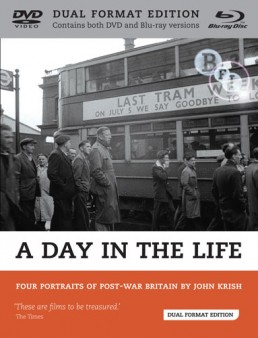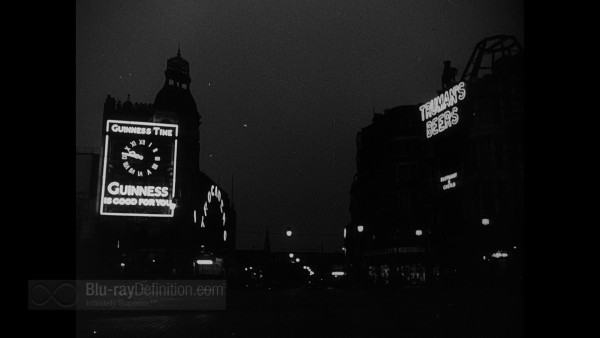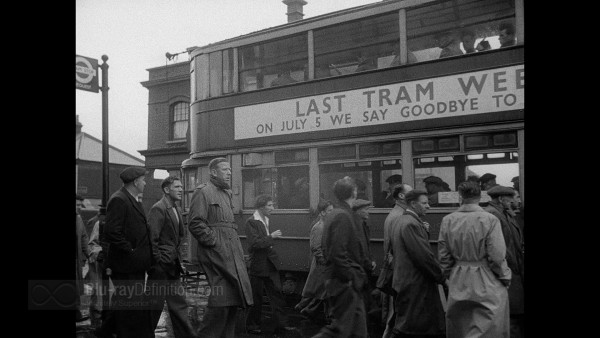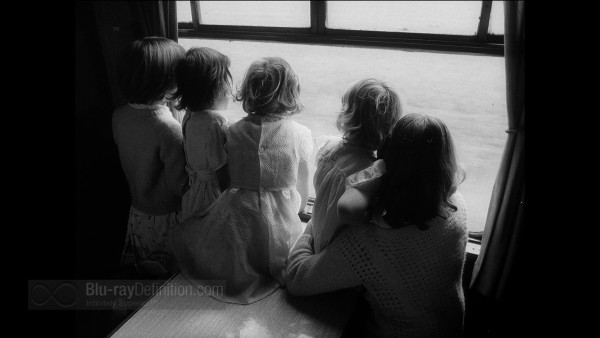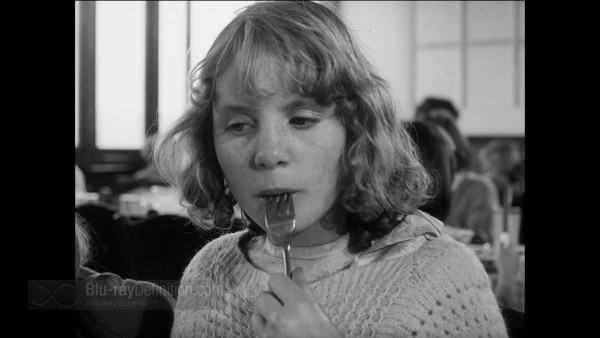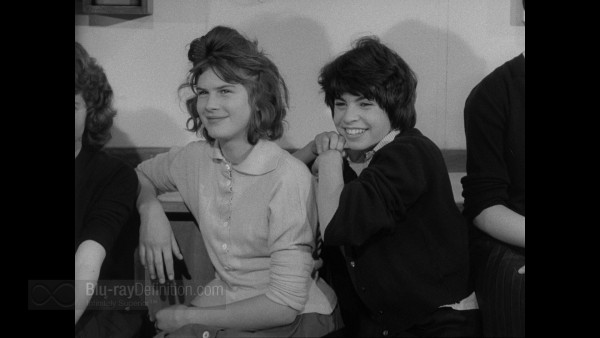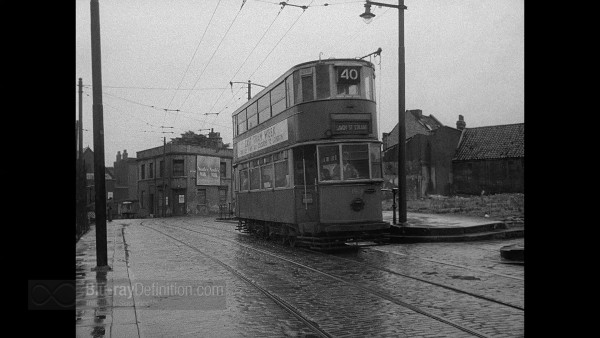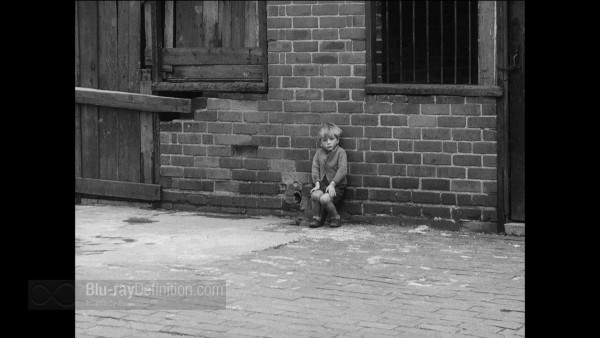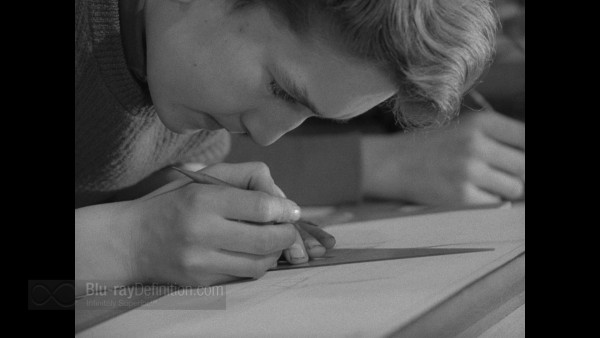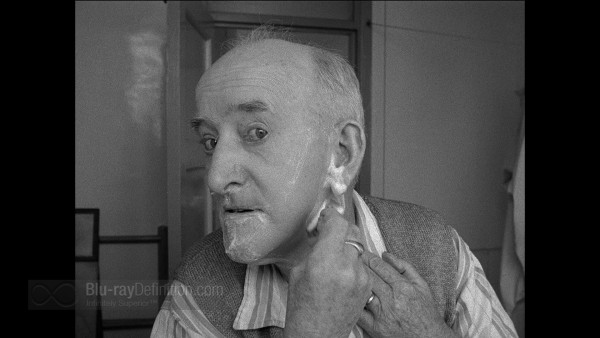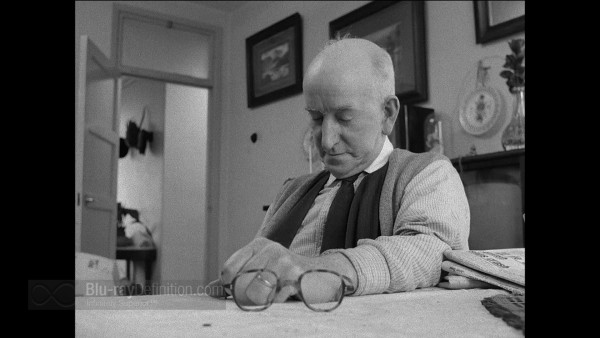- Aspect Ratio: 1.33:1
- Video Codec: AVC/MPEG-4
- Resolution: 1080p/24
- Audio Codec: English LPCM 2.0 Mono (48kHz/24-bit)
- Subtitles: English
- Classification: Exempt
- Region: ABC (Region-Free)
- Discs: 2 (1 x Blu-ray + 1 x DVD)
- Studio: BFI
- Blu-ray Release Date: March 28, 2011
- RRP: £19.99
[amazon-product align=”right” region=”uk” tracking_id=”bluraydefinit-21″]B004KPDHTM[/amazon-product]
Shop for more Blu-ray titles at Amazon.co.uk
Shop for more Blu-ray titles at Amazon.com
Overall
[Rating:3.5/5]
The Film(s)
[Rating:4/5]
Video Quality
[Rating:3.5/5]
Audio Quality
[Rating:3/5]
Supplemental Materials
[Rating:3.5/5]
Click thumbnails for high-resolution 1920X1080p screen captures
(Screen captures are lightly compressed with lossy JPEG thus are meant as a general representation of the content and do not fully reveal the capabilities of the Blu-ray format)
The Film(s)
[Rating:4/5]
Anyone British will instantly recognize the themes and feelings of these four 1950’s and early 1960’s documentaries from filmmaker John Krish. The look at the arrival of a new world, a post-war Britain will be in your bones or somewhere in your subconscious. For everyone else, the quiet attention to detail and nearly epic elevation of the common man allows for an immediacy and universal understanding of Krish’s subjects.
A Day in the Life: A Four Portraits of Post-War Britain was released to UK cinemas 12 November 2010 and went on to win the Evening Standard British Film Award for Best Documentary release of 2011 beating out such contemporary contenders as Banksy’s Exit Through the Gift Shop and the Julien Temple film Oil City Confidential. What was once old was new again, and these four “portraits,” as they, are an involving look at a bygone era, a Britain still recovering from World War II, and before the Sixties started to swing.
The set opens with The Elephant Never Forgets (1953), a film that some Brits may certainly remember for the controversy it stirred up surrounding its release. It lost Krish his job, but went on to become a defiant classic. It is a poetic farewell to London’s trams, following an elderly couple as they take a last ride on the soon-to-be retired transport system. They Took Us to the Sea (1961) is a look at a group of underprivileged city children from Birmingham as they are taken for a day trip to the seaside. The sense of wonderment and joy and attention to the individual makes this journey seem epic and spiritual. Our School (1962) focuses on school teachers and young teens ready to leave school and join the real world. Lastly, the set closes with the most heart wrenching of all, I Think They Call Him John (1964). It is a melancholy, poignant look at a World War I veteran and widower as he goes through his daily routine. The long, draw out scenes, attention to the minutia of objects and sound shown by Krish emphasizes the loneliness faced by this old pensioner and is a fitting conclusion to a set that began with the bustle of the city.
Video Quality
[Rating:3.5/5]
The AVC/MPEG-4 black and white encodements vary in quality greatly. Although they always maintain a film-like appearance and fine to medium grain structure, there is only so much that can be done with some of the apparent source damage without fundamentally harming the detail and authentic appearance of the films. The BFI have done well to maintain restraint, while presenting an acceptable image for these films.
Audio Quality
[Rating:3/5]
The simple, PCM 2.0 monaural soundtrack presents the little dialogue and narration in each documentary short clearly enough, but there is a limited amount of ambient sound and fullness to the voices and crackle can be heard a lot. This is most likely due to the age of the recordings and equipment that was used as well.
Supplemental Materials
[Rating:3.5/5]
The BFI have included two more shorts from Krish on here that sort of stay to the themes invoked by Four Portraits.
- I Want to Go to School (1959) – A portrait of a day at primary school.
- Mr. Marsh Comes to School (1961) – A rather quirky film aimed at teens about an extremely talented Youth Employment Officer.
- Booklet: As always, the BFI have provided an excellent booklet that includes notes and essays by John Krish, Kevin Brownlow, BFI Senior Curator (Non Fiction) Patrick Russel and others, plus stills and information on the transfer.
- DVD – Contains everything above plus a new interview with John Krish at BFI Southbank (19 mins.; DVD Only)
The Definitive Word
Overall:
[Rating:3.5/5]
A spectacular essay on Britain in the middle of the last century by John Grish is pulled out of the BFI archives and provided in a solid dual format release. Recommended.
Additional Screen Captures
–
[amazon-product align=”right” region=”uk” tracking_id=”bluraydefinit-21″]B004KPDHTM[/amazon-product]
Shop for more Blu-ray titles at Amazon.co.uk
Shop for more Blu-ray titles at Amazon.com
Overall
[Rating:3.5/5]
The Film(s)
[Rating:4/5]
Video Quality
[Rating:3.5/5]
Audio Quality
[Rating:3/5]
Supplemental Materials
[Rating:3.5/5]


